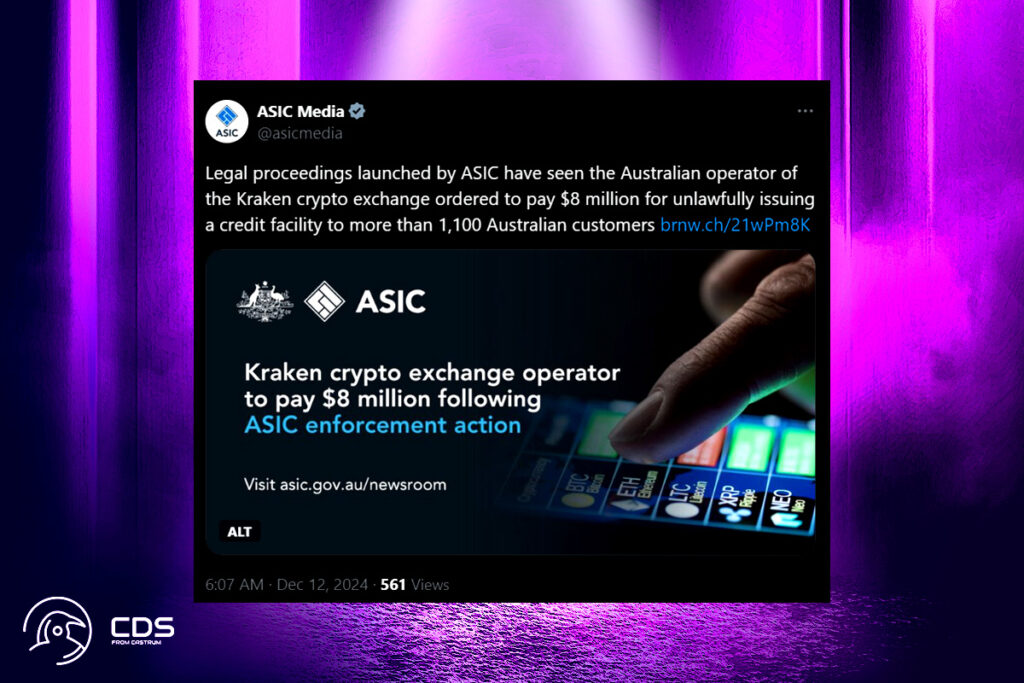Kraken Australia Fined for Non-Compliance, Calls for Clear Crypto Laws

After supporting the nation’s corporate regulator, the Australian operator of the cryptocurrency exchange Kraken, which is based in the United States, was fined $8 million ($5.1 million) by the Australian Federal Court. Bit Trade, the company that runs Kraken Australia, was ordered by Justice John Nicholas in a Dec. 12 ruling to pay a fine within 60 days and cover court expenses. The court determined that Bit Trade operated as a credit facility without a license and did not adhere to design and distribution requirements.
The Australian Securities and Investments Commission (ASIC) is requesting 20 million AU$ ($12.8 million), which Justice Nicholas called “excessive.” The penalty is significantly less than that amount. Bit Trade had asked for a fine of 4 million AU$ ($2.5 million), but the judge deemed this to be “insufficient.”
We appreciate the court recognized our compliance efforts, but are disappointed with the outcome of this case. We believe this case highlights the urgent need for bespoke crypto legislation to address the shortcomings that are causing confusion and uncertainty for Australian crypto investors and businesses. We believe these rulings significantly hamper growth in the Australian economy.
a Kraken spokesperson
ASIC’s Victory: Kraken Australia Fined Over Leveraged Trading Violations
As a result of Bit Trade’s provision of a “margin extension” product that enabled users to trade cryptocurrency or fiat with leverage without the legally needed target market determination (TMD), Justice Nicholas sided with ASIC in its September 2023 lawsuit against the company.
Target market determinations are fundamental in ensuring that investors are not inappropriately marketed products that could harm them,
ASIC Chair Joe Longo
According to Longo, more than 1,100 Australians used the product, lost more than $5 million, and were charged more than $7 million in fees and interest—including one investor who lost almost US$4 million. Nicholas stated in his order that he was confident Bit Trade’s violations were severe and driven by a desire to increase profits. He said that until ASIC stepped in, the margin extension was granted without any consideration of local business law. According to Nicholas, Bit Trade was forced to either develop a TMD or restrict the product’s sales to non-retail customers after learning that ASIC needed a TMD for the product.
This is a significant outcome. It is ASIC’s first penalty against an entity for failing to have a TMD and a reminder for digital assets firms to consider their regulatory compliance obligations.
Longo
For more up-to-date crypto news, you can follow Crypto Data Space.















Leave a comment